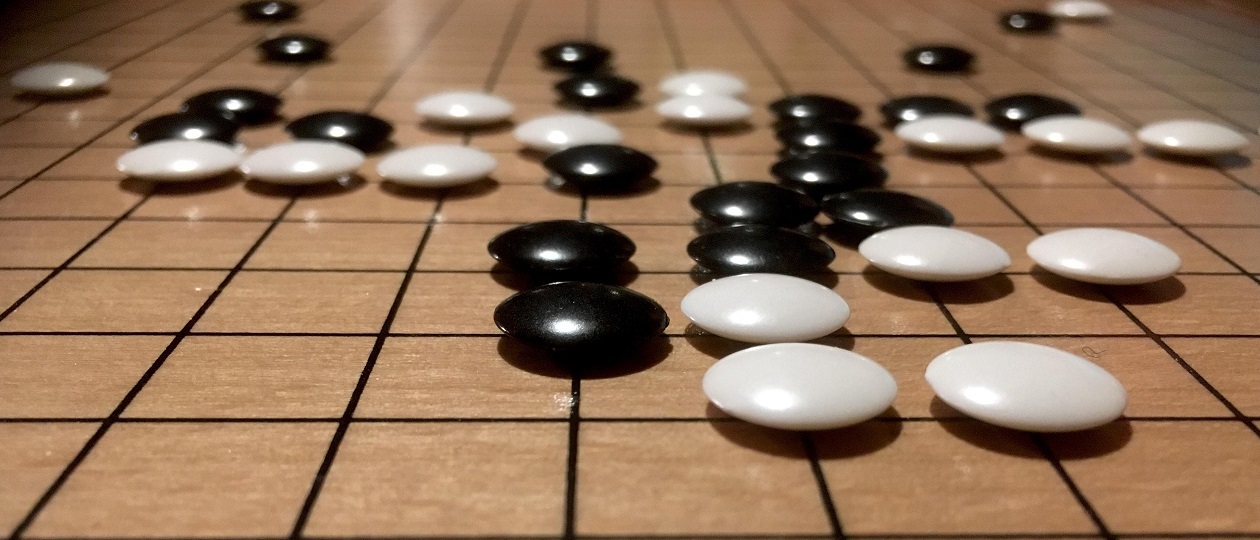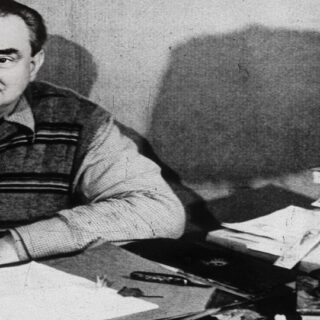
It’s Time to Move Stones. What Makes the Chinese Game of Go So Popular Among Russian Politicians and Businessmen.
The Chinese game of Go that is widely played by the Asian elites is now becoming popular among Russian officials and businessmen. Not only does it help establish a connection between East and West, but it solves many life and business problems as well. A Go master Mikhail Yemelyanov explains how it works.
A British writer Rudyard Kipling said once: “Oh, East is East, and West is West, and never the twain shall meet, Till Earth and Sky stand presently at God’s great Judgment Seat”. To put it another way, East has always been a mystery for the Europeans, they can hardly understand how to communicate with eastern people. In the meantime the world is changing, the cultures are getting closer and communication becomes necessary.
Having started building connections with China in the spheres of economics and business, Russia is also beginning to build an understanding of this country, starting from the areas that are close geographically, hoping that people’s mentalities could be similar there. In general Russians are more European in their mindset. Our culture code is equally easy to understand for Americans, Europeans or Australians. That’s why East seems so mysterious to us in its essence. As a result, we accept Japanese culture, Chinese policies and Korean business etiquette as they are, without attempting to analyze the traditions that have been in existence longer than our countries. It also known that whoever wants to “understand the soul” of his communication partner (whether it is a businessman, a politician or an artist), needs to look at things from his partner’s point of view. It is interesting to note that what Europeans call “a point of view”, people in the East refer to with a certain character, which means another person’s view, not a dangerous one, but having some secret information.
Among the treasures of Chinese strategic philosophy there is a special pearl — the game of Go (also known as “weiqi”). The name of the game means “surrounded with stones”. In his book “On China” Henry Kissinger views Go as one of the key factors, determining the mindset of an eastern person.
If chess is all about a decisive victory, Go is the game of a long military campaign. A total victory, in which the winner gets it all, is impossible here. Go teaches us the art of strategic surrounding and superiority. Emperors used to learn to play it and these days presidents play it. It is an important element of business communication of Asian elites. The Chairman of China Xi Jinping, the President of South Korea Moon Jae-in, many politicians and top managers of Alibaba, CITIC, Huawei, Toyota, Samsung, Xiaomi, all of them play Go. The founder of Alibaba Jack Ma once said: “The principles that I learned in Go were the foundation of my business”.
Many people in the West first heard about a mysterious “game of stones” from the news of AI Alphago defeating the World Champion Lee Sedol in 2016. This AI was created by Google and its victory over the Asian master became a symbolic benchmark in the development of AI. The respect for the game of Go in Asian countries is so big that China, Korea and Japan immediately spent tens of billions of dollars on AI research. Before that the loss of a human player to AI had been considered impossible.
How to Play Go
The game rules are simple. On the board there are 361 line intersections and at the start of a game are empty. Each player has 180 stones that only differ in color. Unlike chess there are no pieces. The player will create different “pieces” and shapes with stones, creating fortresses and armies for attacking.
The players take turns placing stones on any empty intersection on the board. They build strongholds and at the same time try to surround and capture some opponent’s stones. The goal is to surround a bigger territory and to defend it against opponent’s attacks. The game ends when there is no more space for enlarging territories and all of the board is divided between the players. Victory is determined by the number of territory intersections that one managed to surround.
A large board and simple rules offer nearly unlimited possibilities, turning this game into a mirror of real-life problems. Except it is a strategic mirror. The specialty of Go is in its nonlinear strategy that in the words of Sun Tzu “flows like water”. Only this kind of superflexible becomes viable and applicable in real life, where the world changes every day.
At the Eastern Economic Forum in Vladivostok in 2018 Chinese business leaders were discussing a global Russian-Chinese strategy with their Russian colleagues. The presidents of CNPC, SiNoPec, Sibur, Polymetal and the leaders of the Russian Union of Industrialists and Entrepreneurs and the Far East Development Foundation took part in the discussion. The event was held under the auspices of the Russian Ministry of Economic Development. The discussion of strategy was very open because of its unique format. The Chinese guests were offered to communicate with Russian businessmen in the language of Go, instead of formal speeches. After the discussion anyone could play a game of Go, choosing their game partner from one of their Russian business partners.
For most Chinese delegates it was shocking to discover that Russian businessmen are actively learning to play Go. In China they think that the philosophy of Go is beyond comprehension for the Europeans. That’s why that panel session and the businessmen tournament caused a sensation in China, the news of that became as popular as the one of the meeting of Vladimir Putin and Xi Jinping. This unique for the Eastern Economic Forum format of a strategic session combined with a Go match was the idea of Sergei Gorkov, when he was the managing director of Vnesheconombank. He tried it successfully as a vice minister of the Ministry of Economic Development. The moral of this story is: if you want to build a relationship in Asia, you should place a few stones on the Go board and doors will open that you never knew were there in the first place. In the hands of Russian politicians and businessmen Go has become a tool of soft power for building influence among the elites of China, Korea and Japan.
Perceiving Go as a philosophy and not just a smart game competition is crucial for understanding this cultural phenomenon. Go concepts determine strategic decisions made in politics and business in the East, where Go is considered a universal language, spoken by everyone who makes big and complex decisions.
That’s why major centers of studying Go strategy are created in China by order of Xi Jinping. They will spread over tens of square miles, just like big universities. The first one of these is being built in Rizhao now. According to the project there will be 5 villages in it, representing 5 Go-playing countries. In the minds of the Chinese, Russia is one of them, among China, Japan, Korea and Mongolia. There has been ongoing discussion for 20 years of holding the World Championship outside of Asia for the first time. Russia won the right to organize this event. This is a signal to the Russian leaders, done in a traditional Asian way of indirect strategy, by handing over the right to hold the World Championship.
Go Strategies for Business and Real Life
Today Go is one of the best business games in the world. When placing black and white stones on the board grid, we learn strategies of creating and developing businesses, managing teams of people. By playing the game we find new ways out of the crisis and inspiration to win in a competitive environment
Here are some strategic Go tips that can be applied to business:
Share, don’t fight. Don’t try to capture all of the opponent’s stones. A war is best led without unsheathing swords, Sun Tzu used to speak about that too. The goal of strategy is to avoid a direct confrontation. In the game of Go it is impossible to win by trying to capture stones. Aggression and hastiness usually imply a bad strategic vision. Play and outplay your opponent but don’t try to attack him. In the end it’s not the angriest one who wins but the most flexible. An example of a flexible strategy would be the approach of “Magnit” management to developing their network. Instead of competing with stronger opponents in major cities, “Magnit” went for smaller cities and provinces. Sharing the territory allowed it to avoid very severe competition and to grow enough to be able to compete with Russian market leaders in any city now.
Think as your opponent. During the crisis of the 80s one of Intel founders Andrew Grove was desperately trying to save the company. The Japanese competitors were ahead of them on their traditional market of memory modules. Andrew asked his coworker over a cup of coffee, what he would do if they left the office now and came in again as if it was the first time. He answered: “I would stop the production of memory modules and I’d focus on microprocessors. They sell well and Intel doesn’t have any competitors in this field.” Andrew looked at him and said: “Why can’t we do it then?” In business and in Go one has to be able to estimate the situation from a different viewpoint. For example, from that of your competitor’s. “Lookers-on have eight eyes each”, says a Japanese proverb. A look from from the outside will help you much more than trying to solve a problem from inside.
Make only the best moves. You can’t win if you bet on everything. How can we understand which decisions lead to victory and which ones lead to defeat? The strategy requires extreme selectiveness and precision. How to find the right goal in the world of ever-growing volatility? A perfect move in Go aims to achieve several goals at once. You move in different directions, quickly discarding the ones that lead you to a dead end. These multi-target moves create ideal conditions for victory. In business leading companies demonstrate this kind of ability. They develop in many fields at the same time and they switch to the most promising one depending on the situation. An example of this sort of strategy was the decision of Fujifilm to bet on both digital and film photography. Seeing the prospects of digital technology, the Japanese company modified its strategy very much in the style of Go and left its main competitor Kodak behind.
Don’t get discouraged. If the stronger always defeats the weaker, strategy wouldn’t be necessary. With the help of strategy someone who is weaker can beat someone who is a dozen times stronger. How is human play different from that of AI? A machine doesn’t fear defeat, nor does it crave a win. Lee Sedol was the only human player who managed to beat the new AI. In a lost position he found an incredible move that was actually a mistake. The machine couldn’t find the best response and lost the game. There is always a way out, even from the most difficult situation, and this is what Go teaches us. If you find yourself in a tight spot, think outside the box and search for a way out of the negative environment. The biggest advantage of humans is fortitude, which in Japanese is called “kiai”. This will determine victory or defeat.





